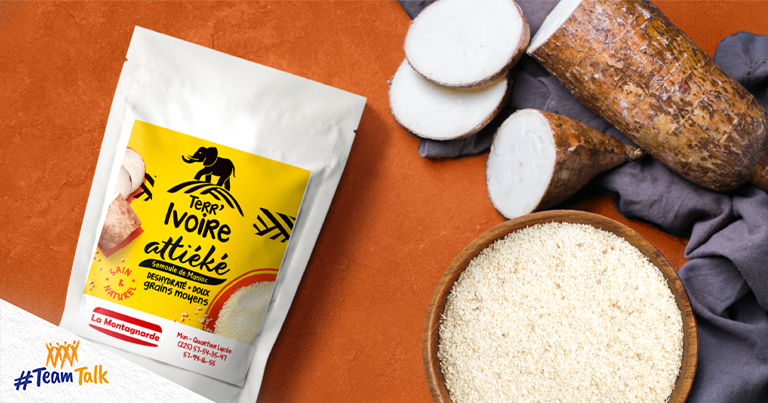
FIGARO DEMAIN A common banner and country-specific channels make it possible to boost local production and make it more profitable.
In a deep and calm voice, Pathe Amath Sene, climate and environment specialist for West Africa at the International Fund for Agricultural Development (IFAD), explains, step by step, a vital plan for food security in Ivory Coast and, in the future, on the continent.
An agricultural engineer by training, he is the coordinator of more than 32,000 small-scale producers, often women and young people, who cultivate less than 2 hectares of land of cassava ground into semolina – called attiéké -, rice, mangoes, etc. Its ambition is to improve the productivity and income of farmers in the west and north, the country’s landlocked and deprived regions.

Read more : The urgency for design to serve small holder farmers in Africa
In Abidjan, the price of a baguette has increase
“These farmers sell in volume, at low prices, and lose part of their work,” laments Pathe Amath Sene. “A brand and packaging allow them to reach the middle class through supermarkets in the cities.”
In 2019, he met Sylvia Vitale Rotta, co-founder of the Team Creatif design agency, located in Paris. She jumped headlong into the project out of a passion for the Kilimanjaro region, where she grew up. Today, she has signed a yellow and black logo with a majestic elephant: “Terre d’Afrique operates as a common banner. Then, the brand is declined as and when the different segments are opened: Terr’Ivoire, then soon Terre Senegal, Terre Tanzania, Terre Kenya… We are moving forward step by step.”
To avoid pollution with plastic, Team Creatif has designed zipped bags made of recycled paper, with a protection inside, which preserve the freshness of food. More attractive and anti-waste, these products earn twice as much for producers as those sold on the street. In the mango sector alone, 5,000 smallholders are involved in the innovation and their earnings are reinvested in the purchase of fields, fertilisers or mechanisation.
Producing more and better is an emergency. The war in Ukraine has weakened Benin, Senegal and Burkina Faso, which are highly dependent on wheat from Eastern Europe. “Most African countries, including Ivory Coast, are experiencing high inflation,” confirms Pathe Amath Sene. “In Abidjan, the price of a loaf of bread has doubled. It is essential to consume less imported cereals and more locally produced ones. For example, making bread with millet or sorghum flour.” Substituting endemic varieties to combat shortages, an idea in the making that is only waiting to flourish.


